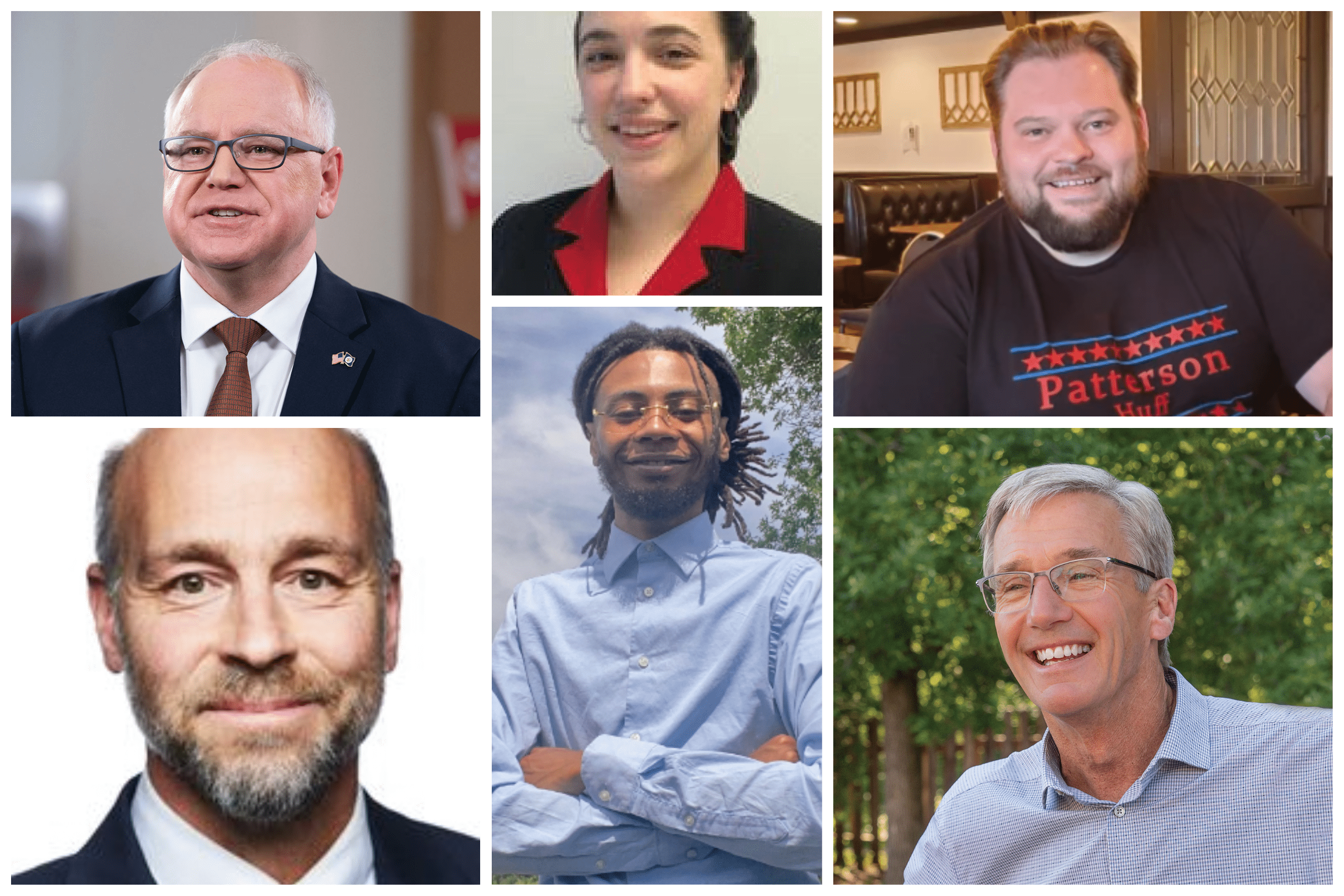Voter guide: See where candidates for Minnesota governor stand

From left to right, Tim Walz, Gabrielle Prosser, Steve Patterson, Hugh McTavish, James McCaskel and Scott Jensen. All six are running for the spot of Minnesota Governor for the 2022 midterm election.
Courtesy photos
Go Deeper.
Create an account or log in to save stories.
Like this?
Thanks for liking this story! We have added it to a list of your favorite stories.


